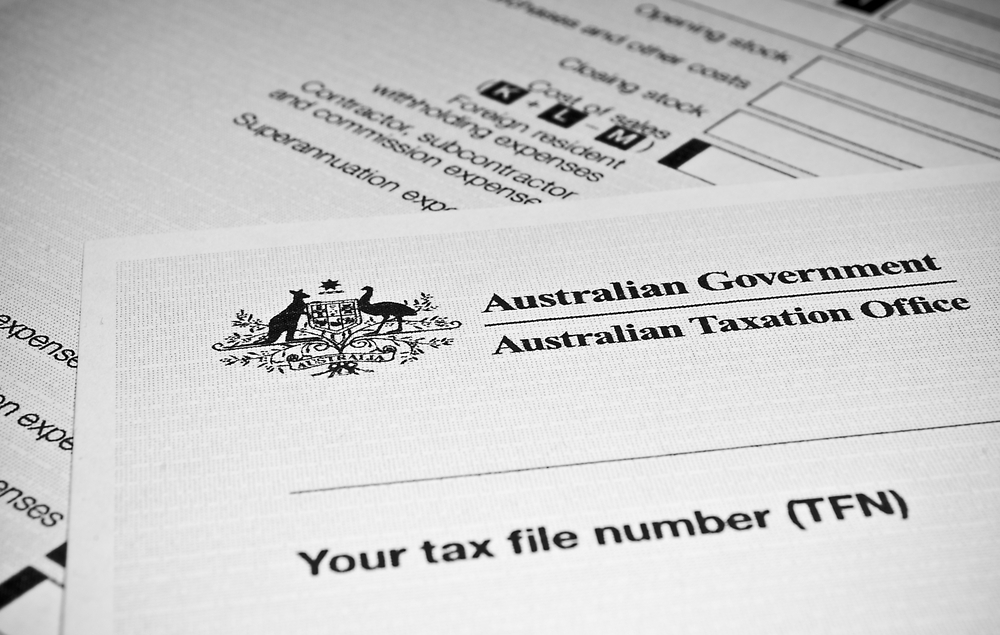Trying to manage, remove or simply receiving a Directors Penalty Notice (DPN) from the Australian Taxation Office is always a cause for concern. However simply because you have a Directors Penalty Notice does not automatically mean that you are required to pay it, you will lose your personal wealth and it does not mean that the possible tax debts from “other people” are your fault.
What is a Directors Penalty Notice
As an Australian company director you have a range of obligations and exposure for the actions of the company you represent. And in addition to those obligations you can also be personally exposed to the unpaid tax debts for unpaid Pay-As-You-Go-Withholding-Tax (PAYG), Goods and Services Tax (GST) and unpaid Super Guarantee Charge (SGC).
Once the ATO issues a Directors Penalty Notice to you (as a director) you can become personally liable for these debts.
Directors Penalty Notices and old tax debts
As a new director you can be liable for tax debts of the company that arose before you became a director. So even if the company has been paying its PAYGW, GST and SGC on time while you have been a director the old debts can still become your problem simply because you have become a director.
As a new director you should undertake a “tax review” of the company you are representing within 30 days of your new appointment. If you uncover unpaid tax debts during this time you should make sure that the company either:
- Pays the full PAYGW and net GST that arose from 1 April 2020; and Pays the full Super Guarantee Charge and Wine Tax that arose from 1 April 20212; or
- Appoints an administrator (most liquidators can also be an administrator); or
- Appoints a Small Business Restructuring Practitioner; or
- Begins to wind up the company.
Importantly, one of the above choices is to not resign and be exempted from the old debts. So if you become a director, you uncover unpaid taxes including PAYGW, SGC, GST or WET you must do one of the four above choices. Even if you try to do something (like option 1) and the other directors stop you – you are still liable for the debt.
And if you do nothing you are liable for the debts. Doing nothing once you receive a Directors Penalty Notice is probably one of the worst options you can consider.
Dealing with multiple Directors Penalty Notices
The ATO will typically issue a Directors Penalty Notice for each director for the full amount. This is typically referred to as a parallel liability.
Simply paying “your share” of the tax debt arising from the ATO Directors Penalty Notice still means that you are liable for the remaining full debt under the Directors Penalty Notice.
Anne and Coral are directors of Total Care Solutions Pty Ltd. The company has a PAYG Withholding Debt of $400,000.
Anne and Coral have a severe falling out and Anne resigns as a director. The ATO issues a Directors Penalty Notice to Anne and Coral for $400,000 even though Anne is no longer a director.
Anne pays $200,000 to the ATO as a result of the DPN. She tells Coral to pay her $200,000 so the matter is finalised.
The total debt now due under the Directors Penalty Notice issued to Coral, Anne and the company is now $200,000. So Anne cannot walk away from the remaining debt even though she paid half of it.
In the above example, the mere fact that Coral managed “the finances” does not change the liability of Coral to pay the debt. This is the case even is Coral stole money or she was negligent in her job.
What is a Remittable Directors Penalty Notice?
A Remittable DPN gives you, as the director, 21 days to take action and avoid liability. So if the company pays the DPN in full you, as the director, will not be personally liable for the DPN. Alternatively, if another director pays the DPN in full you will also be exempted from becoming personally liable for the ATO debt.
What is a Lockdown DPN?
If you are issued with a Lockdown DPN the company not only has tax debts due to the ATO but it also has outstanding tax lodgements due to the ATO as well (more than 3 months old).
A lockdown DPN is more severe as you, the director, is automatically liable for the tax debts and you do not enjoy a 21 days grace period.
Lockdown DPN’s are also rare. They are typically associated with companies that have been poorly serviced by their tax advisors and resulted in late tax lodgements.
Can I make a payment arrangement with the ATO?
If you have a Directors Penalty Notice you cannot enter into a payment arrangement with the ATO. This option has been recently removed.
What does “personally liable” actually mean?
If you are personally liable to pay a tax debt the assets you own are a possible way to settle the tax debt (including the family home). However if another family member, who is not a director, owns assets, those assets are not accessible. So if the family wealth is owned by your spouse, your superanuation fund or your family members overall through a family trust then none of these people (or entities) will be forced to pay your Directors Penalty Notice themselves.
It is for this reason that getting good structuring and asset protection advice well in advance is important for family owned and private businesses. Sadly last minute strategies rarely work as there is a clawback of transactions for liquidators if the intent of the transaction was to reduce the assets and defeat the ATO and Director Penalty Notice.
How do I defeat a Directors Penalty Notice?
The process of properly serving a Directors Penalty Notice is involved. Importantly the DPN issued by the Australian Tax Office must be served to the residential address of the director as listed on the ASIC register.
If the DPN has been issued to the incorrect address you might be able to defeat it by declaring it invalid. This will give you more time to arrange your affairs before a new DPN is issued.
If you get a DPN the amount due under the DPN is typically not detailed. And while the ATO is not required to itemise the break-up of the DPN you can request how the number was calculated under a Freedom of Information Request (FOI).
The act of lodging a FOI will not by itself defeat a Directors Penalty Notice. However it is also fair to say that understanding the breakdown of a DPN is important – especially where there are multiple directors involved and the previous tax lodgements, tax returns and overall accounting in the business has been chaotic.
The law also contains some specific notices to a DPN including:
1.Severe illness
2. You took reasonable steps to make your company meet its obligations.
3. You interpreted the law in a way that was “reasonably arguable”
The ATO has strict time limits on the issue and application of a Directors Penalty Notice. And it is fair to say that the ATO are not always correct on getting the complex application of these time limits correct.
This is impacted by the dates you lodged tax forms, Super Guarantee Charge Statements, the time you put the company into liquidation and whether the ATO issued you with default assessments. Engaging with Westcourt as your tax advisor, and possibly briefing a tax barrister, is important to achieve good outcomes here.
It is fair to say that simply receiving a Directors Penalty Notice does not make you a “bad” person. Typically, directors facing a DPN are stuck with a complex web of tax lodgements, tax payment history and a lot of confusion. Often the record keeping has transitioned across accountants and bookkeepers with very little to no ongoing record of what numbers represent.
Getting on top of your tax lodgements and the support for your tax lodgements is important. And it is not uncommon for us to be approached by a new client with a request to amend the last four years of tax returns and BAS resulting from lax accounting and bookkeeping – often with large reductions in the tax position for a client. And getting in front of the problem with the ATO has often resulted in reduced in interest and tax penalties payable.
It is also fair to say that paying the Tax Office before another ordinary creditor – no matter how loud they are – is a better strategy in the long run. Provided that your company is not trading while insolvent the ordinary creditor will find it difficult to pursue the directors personally.
Engaging Westcourt to assist in your tax compliance and tax management is a great solution to businesses in financial stress. Our sole focus on tax services for family business gives us an insight into how privately held, family-owned business operate and the tax law surrounding family owned private businesses. This focus, together with our deep global network with Geneva Group, has given us an edge that other firms cannot hope to replicate – so if you are looking at a Director Penalty Notice – call us today. We can help, we understand, and we have solutions.






